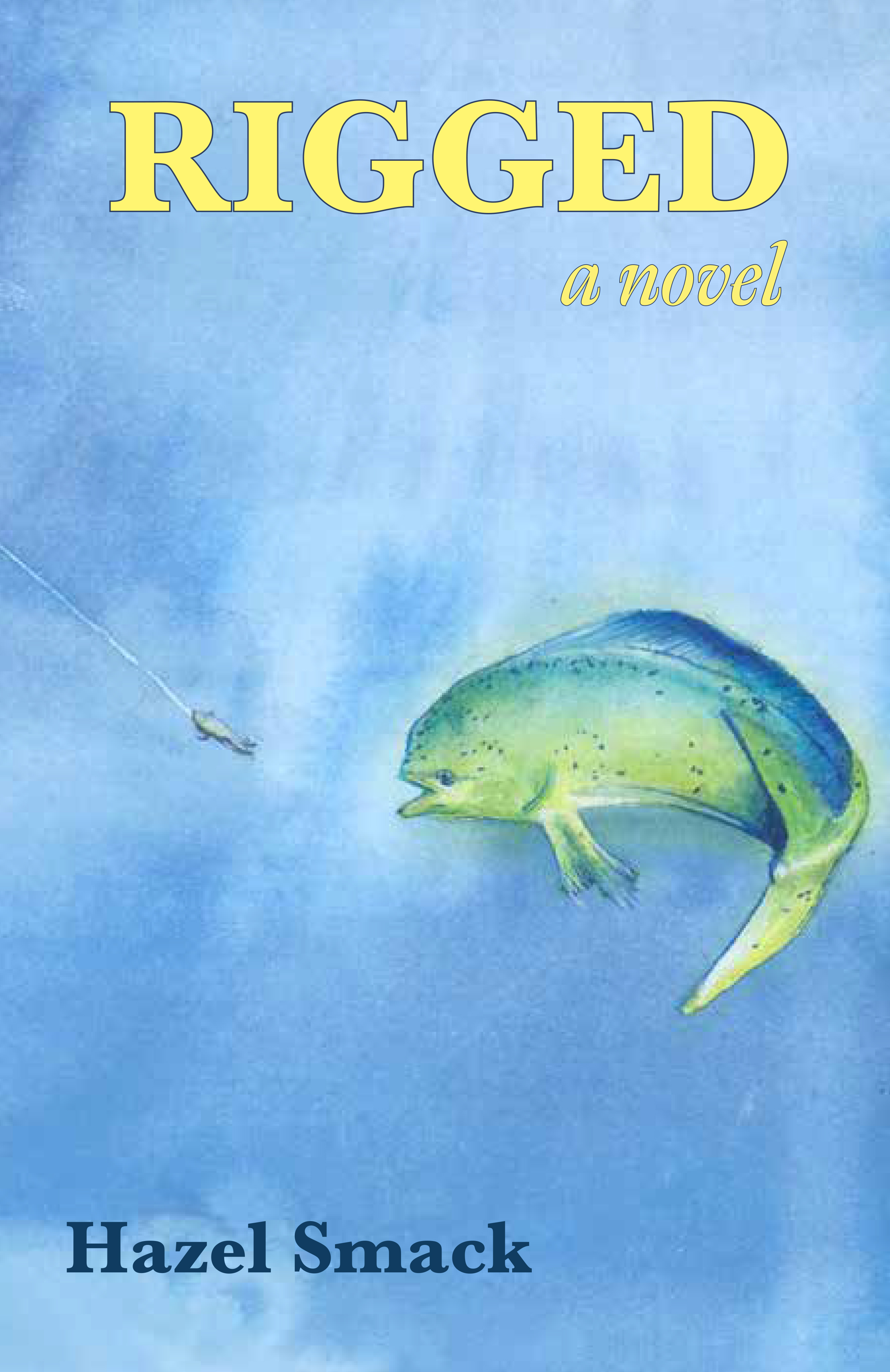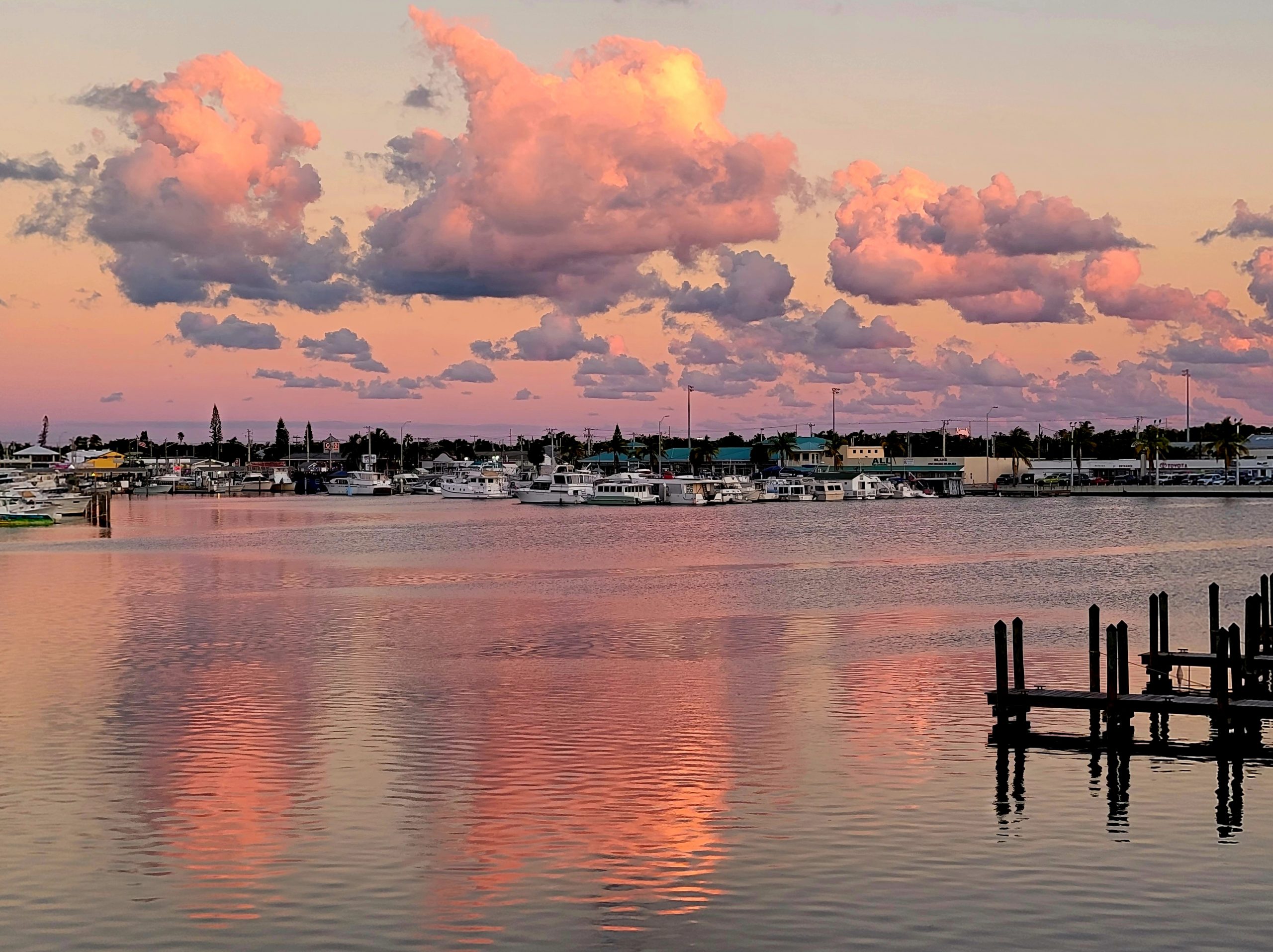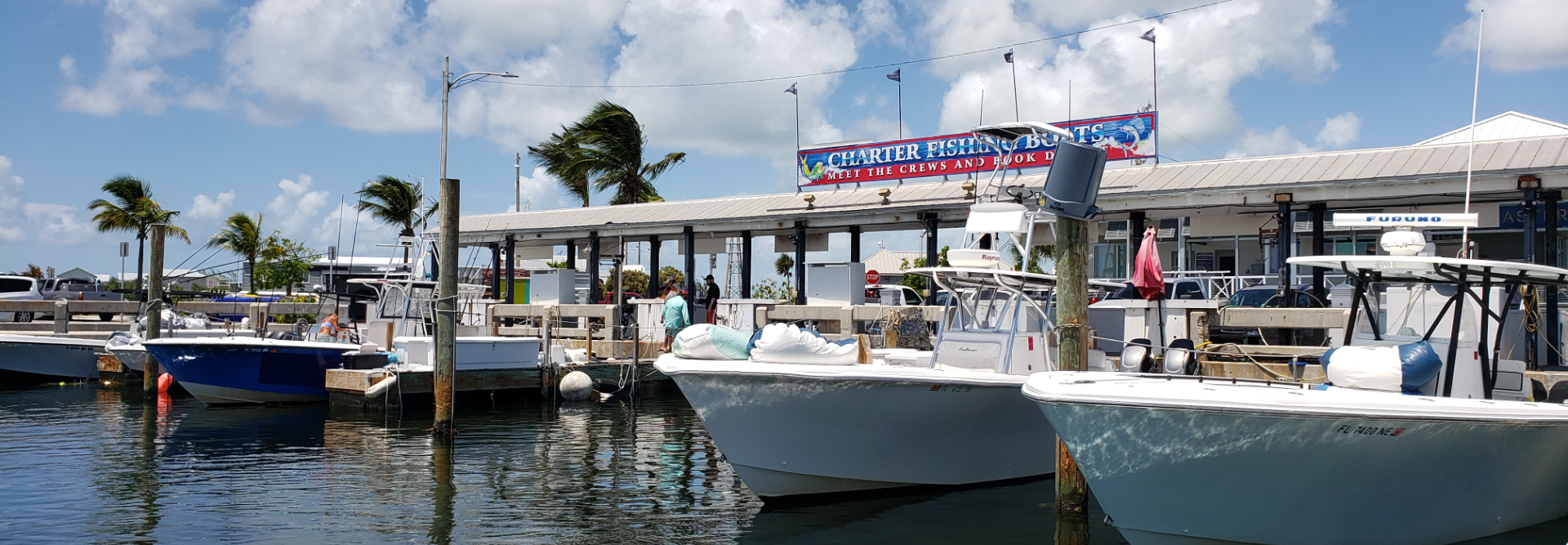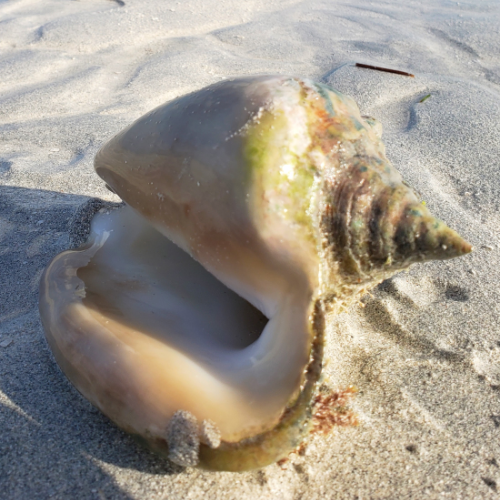RIGGED Summary:

This young adult novel follows seventh-grader, Fisher Haskins, also called Little Fish, as he navigates life in Key West. For Fisher Haskins, school is a torturous waste of time, and not just because he can’t shake his reputation of nice-but-dumb kid. After his evening job washing boats on The Row, he barely has time to scarf down leftovers, get through his mind-numbing homework, and catch a few ZZZs.
Until recently, staying busy had worked just fine to distract Little Fish from facing life’s big quandaries, like, are some people destined to be eternal losers? Who decides what “winning” even means? And why does he feel like a walking magnet for every asshole on the island? If his dad were around, maybe he’d have some answers. Or would he be too wasted to care?
Audiences will connect with Fisher’s search for answers, as well as, how he grapples with his big, conflicting emotions tied to the people in his life and how their actions affected him.
Questions about the writing process:
How did you come up with the idea for this book?
My dad was a charter boat mate on Historic Charter Boat Row in Key West, where the book is set. As a child, I had a lot of time by myself on the island in ways that I still can’t tell my mom about or she’ll FREAK the freak OUT. “Tourist season was over. The beach was empty,” were the first lines I wrote in a notebook I kept then, with the intention of writing a novel.
But I didn’t get much further for several years (fine, decades) because, well, WANTING to write a book and WRITING a book are not closely related propositions, it turns out. And no matter how inspiring, a setting on its own isn’t compelling enough to carry a novel. Also, lots else got in my way, like school (and teachers who helped confuse me about what “smart” means), and then college, and then more college, and then working out of college debt, as a few examples.
What did you learn when writing the story?
I’m so leery of preachy books, so I want to be super clear that I’m talking about what I, very personally, learned from this experience. I learned more about how similar most humans really are, despite the individual circumstances that shape us. I find comfort in learning (over and over in new ways) that we’re just. . .not that special all on our own. Is that too harsh? I mean we’re each a valuable piece of a whole, of course, but that whole depends on us to figure out how we’d like to contribute to the sense of wholeness that’s way bigger than we are individually. And in that pursuit, we each deserve all the time, love, support, and compassion we need. There’s enough for everybody–there really is, if we prioritize all of us over some of us. Getting to know Fisher through writing him definitely helped me learn that truth more deeply.
What was the most challenging part of writing? What helped you get through those times?
Hands down, trusting myself was the most challenging part. The first horrid draft of RIGGED was finished about ten years ago. Ten! What got our old buddy Fish to the finish line, really, was giving myself permission to suck. The first draft sucked so suckily that I turn red thinking about it even now. The second through millionth revisions sucked progressively less, and I had people who were gentle but honest with me about that. Breaks for other manuscripts and projects were also helpful because going back to a story after ignoring it for a long time is pure magic for revealing what’s working and what isn’t.
What research did you have to do?
I’ve lived all over Key West and the Lower Florida Keys over the years, which informed the general vibe of the book, for sure. But for specific fishing-related research, I turned to contacts I’ve made along the way in the charter fishing industry here. Without giving any spoilers, a real-life invention team helped me understand some of the more technical, mechanical aspects. Authenticity in fiction feels really important to me, so having beta readers who knew local charter fishing inside and out was also suuuper helpful.
Can you paint us a picture of where you were and what was going on in your life as you were writing this book?
What resurrected this manuscript and gave it new meaning to me was losing my biological dad. We’d struggled my whole life to understand each other, and finishing RIGGED helped me with that in a way I didn’t anticipate was possible.
Were there any particular songs you listened to while writing this book? How do you think that music informed the story?
I know that many writers have motivational playlists, but I’m a weirdo who doesn’t focus if good music is playing–all I want to do is sing. Maybe I should compile a playlist of crappy music to tune out while I write? Taking suggestions.
Who did you picture reading this book when you wrote it?
Honestly? In the earlier days, it was hard not to picture potential literary agents. Later, when my now-agent and friend took a chance on me, I began writing more freely, like I wish I’d been doing all along. And for RIGGED, that meant writing for tween and teen ME, I think. I wrote the book that I’d needed then. There are a zillion great books in the world, but there’s also sometimes a level of dishonesty in some fiction written for young people that I had/have a hard time connecting with. Thinly-veiled didacticism (sneaky lessons) maybe? Feeling the gaze and influence of gatekeepers in the writing? Schoolishness always somehow winning in the end? Stuff like that. So what worked was picturing younger me, yearning to be held for who I already was instead of what I could become.
How do you define success, as it relates to this book?
When the book was announced by ASDE/Tipping Points Press, one of the first responses was from a parent who said she got teary reading the synopsis and couldn’t wait to tell her unschooled kids about it. That’s what it’s all about for me, and so it has already exceeded my expectations. I can die now. Kidding! I have more to do.
Questions about the story:
Which scene stuck with you the most?

Hmmm. Probably any scene revealing another level in the relationship between Fish and Greg. There’s something extra special about how those two vibe. Oh, and the beach scene, because there’s no love like first love. In general, I hate when young love is written off as less real or less important or less painful if it ends, simply because it was shared by young people.
What was your favorite part of the book?
It’s sacrilegious to answer that. It would hurt other parts’ feelings. :)
What experience in your own life did you draw from to be able to write from Fisher’s point of view?
When I was with my dad, I spent a lot of time on the same docks as Fisher. Back then, the captain and customers rarely minded if the mate’s kid tagged along on their days out fishing. Some even insisted I come down from the bridge to join the fun. I also spent many days on the docks waiting for my dad, or hanging there with him to yell, “Let’s go fishing!” to curious tourists he wanted to hook and book. Fisher and the other characters are fiction, but I drew inspiration from many people I knew. And Whiskey Reef? Real life. Addiction was a very real part of my relationship with my dad. Substance abuse was a very real part of life for some of his friends, too, which contributed to their early deaths. People are complicated–every single one of us.
How does this story relate to self-directed education?
IMHO, it’s a story about self-direction in a thoroughly and senselessly schoolish world. The truth, however frustrating, is that most young people today still have to attend conventional schools for reasons outside their control, no matter the harm. I hope that every reader from hardcore, confident unschoolers to the schooled but SDE-curious, will relate to our flawed and very human Fish (or Greg, or Mom, or Captain Bonny, or Big Joe, or Isla, or Shrimp, or, or, or. . .) in a way that feels hopeful. Young people can and do find ways to work through and around barriers, with or without a perfect support system in place. And sometimes a perfectly beautiful support system looks nothing like a conventionally perfect family.
RIGGED is now available for purchase here.
If you enjoyed this article and feel called to give back to ASDE, here are ways you can support our work:
- Donate money
- Share our content with others! Click one of the buttons above to easily share on Twitter, Facebook, or email.
- Consider becoming a Contributor for Tipping Points
Tipping Points Magazine amplifies the diverse voices within the Self-Directed Education movement. The views expressed in our content belong solely to the author(s). The Alliance for Self-Directed Education disclaims responsibility for any interpretation or application of the information provided. Engage in dialogue by reaching out to the author(s) directly.






